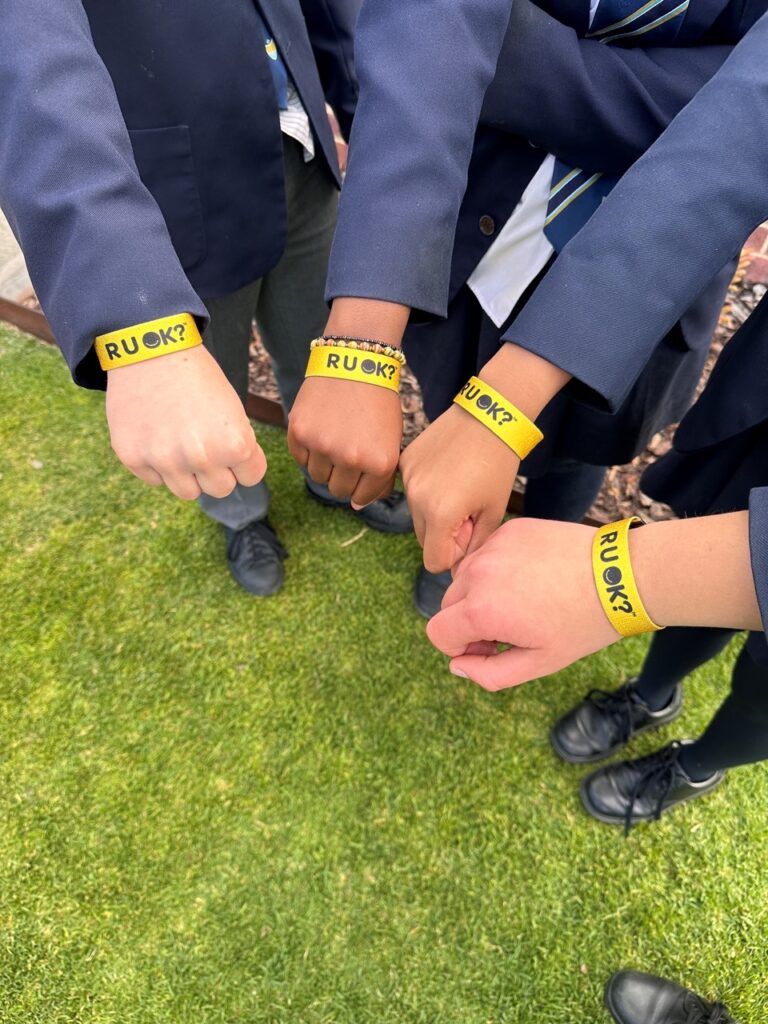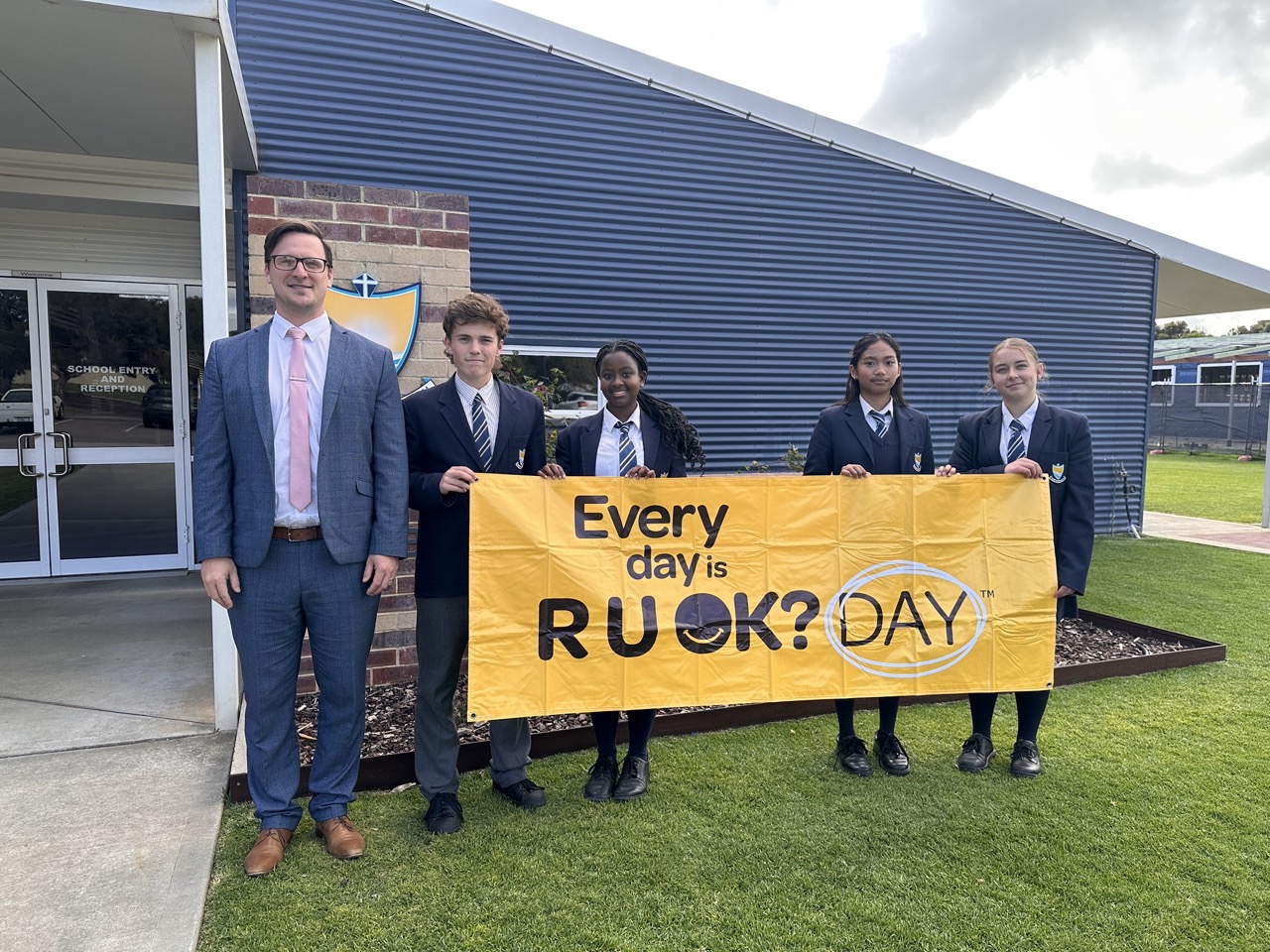School pastoral care director Hilton Hardman and Esperance Anglican School students Ashton Davies, Brianna Kinyai, Hilary Cabahug and Keira Shipp preparing for R U OK? Day. Photo EACS.
Esperance Anglican school highlighted the importance of asking the question: “are you ok?” with a day full of activities that promote mental health awareness on Thursday.
The team behind R U OK day has a new nation-wide campaign aimed at encouraging people to pose the question to friends and family any day.
The aim of the campaign is to bring to forefront an issue that is normally swept under the rug, because as organisers say, everyone struggles with mental health and the best we can do is be there for someone else.
School director of pastoral care Hilton Hardman organised this year’s R U OK day activities.
“For me and my role I think it’s the biggest event on the calendar for mental health and wellbeing,” he said.
“It’s all about the importance of asking those questions and supporting those around us.”

Esperance Anglican School’s R U OK day began with a yoga session for the teachers which aimed to highlight the benefit of mindful movement for mental health. The students also had opportunity to participate in this mindful movement with a session dedicated to listening to music and dancing.
Mr Hilton said several quizzes throughout the day encouraged students and teachers to gain a better understanding of mental health and created a “positive influence” through “being around others” and “camaraderie”.
Yellow is the colour that Australians are encouraged to wear to raise awareness for R U OK Day. While yellow bracelets were distributed at Esperance Anglican Community School to represent “a simple yet powerful reminder to check in with one another”, Mr Hilton said R U OK day represented a significant learning opportunity for students.

“Often people are nervous about talking about mental health,” he said.
“The yellow accessories are an add on but educating kids and teaching them how they can be a supportive figure and promote their own happiness is what is most important.”


